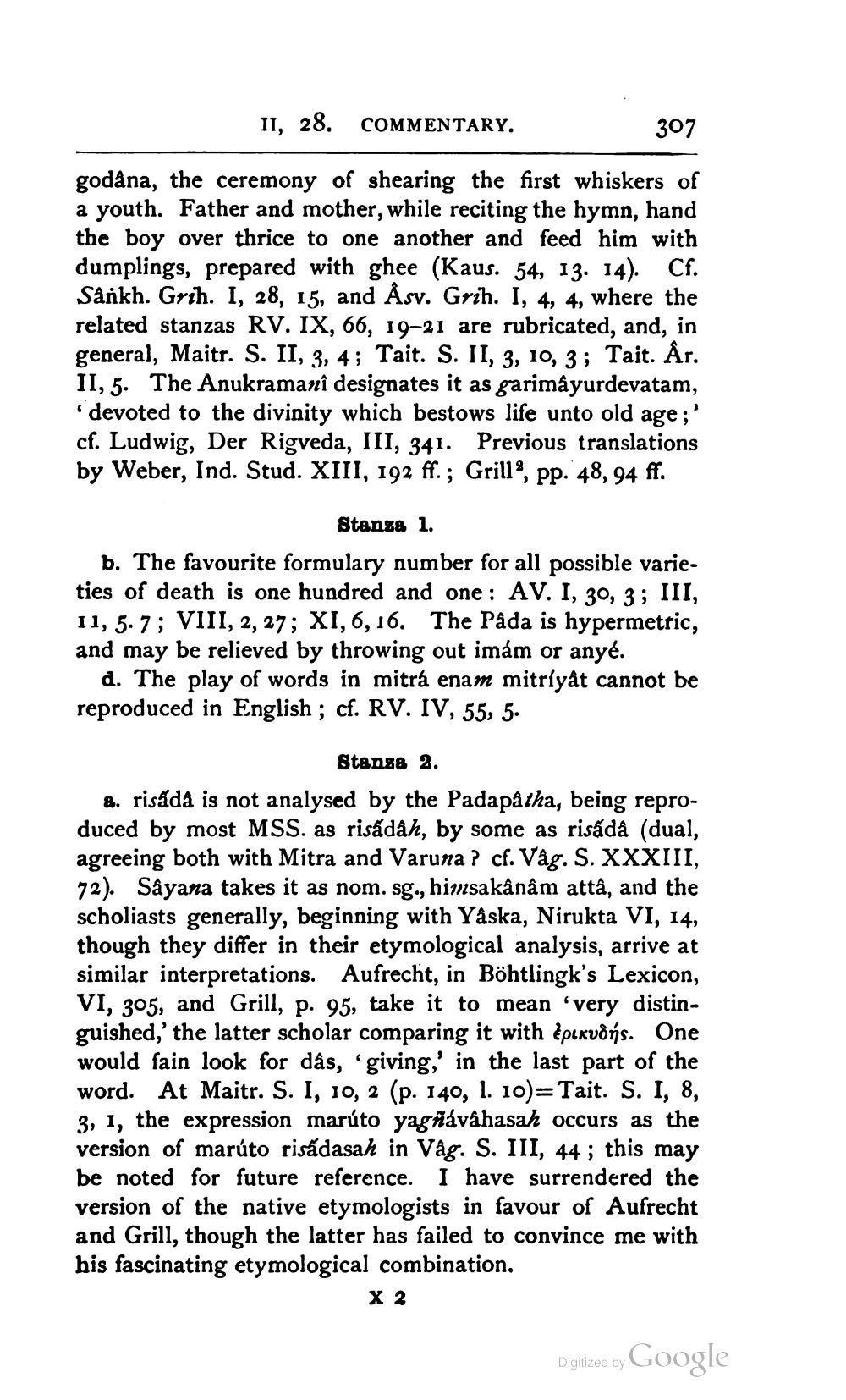________________
II, 28. COMMENTARY.
- 307
godana, the ceremony of shearing the first whiskers of a youth. Father and mother, while reciting the hymn, hand the boy over thrice to one another and feed him with dumplings, prepared with ghee (Kaus. 54, 13. 14). Cf. Sankh. Grih. I, 28, 15, and Åsv. Grih. I, 4, 4, where the related stanzas RV. IX, 66, 19-21 are rubricated, and, in general, Maitr. S. II, 3, 4; Tait. S. II, 3, 10, 3; Tait. År. II, 5. The Anukramanî designates it as garimayurdevatam,
devoted to the divinity which bestows life unto old age;' cf. Ludwig, Der Rigveda, III, 341. Previous translations by Weber, Ind. Stud. XIII, 192 ff.; Grill, pp. 48, 94 ff.
Stanza 1. b. The favourite formulary number for all possible varieties of death is one hundred and one : AV. I, 30, 3; III, 11, 5.7; VIII, 2, 27; XI, 6, 16. The Pada is hypermetric, and may be relieved by throwing out imám or anyé.
d. The play of words in mitra enam mitriyât cannot be reproduced in English ; cf. RV. IV, 55, 5.
Stanga 2. a. risada is not analysed by the Padapatha, being reproduced by most MSS. as risadah, by some as risada (dual, agreeing both with Mitra and Varuna ? cf. Våg. S. XXXIII, 72). Såyana takes it as nom. sg., himsakânâm attâ, and the scholiasts generally, beginning with Yåska, Nirukta VI, 14, though they differ in their etymological analysis, arrive at similar interpretations. Aufrecht, in Böhtlingk's Lexicon, VI, 305, and Grill, p. 95, take it to mean 'very distinguished,' the latter scholar comparing it with éplkvòns. One would fain look for dås, 'giving,' in the last part of the word. At Maitr. S. I, 10, 2 (p. 140, 1. 10)=Tait. S. I, 8, 3, 1, the expression marúto yagñáváhasah occurs as the version of marúto risadasah in Vâg. S. III, 44 ; this may be noted for future reference. I have surrendered the version of the native etymologists in favour of Aufrecht and Grill, though the latter has failed to convince me with his fascinating etymological combination.
X 2
Digiized by Google




